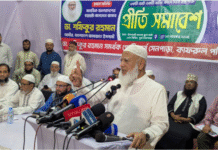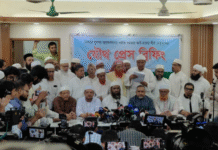Between power and security

First and foremost, a state must protect its citizens
One is tempted always to analyze the use of power in the context of acknowledged super-powers: The US and Russia. This is based mainly on their possession of arms and digital technology. In this, cyberspace plays an important role.
When it comes to trade and the ability to influence the paradigm of commerce, energy, or communications, reference is made not only to the US but also to China, Japan, Canada, and certain countries of the EU.
In fact, in Europe, the UK, Germany, France, and Russia, are considered as major powers, while Spain, Italy, and Poland are considered as regional powers. In Eastern Asia, in addition to major powers Russia, Japan, and China, there are two regional powers: North and South Korea.
Within South Asia, India and Pakistan occupy this platform because of their nuclear capabilities and the availability of advanced weapons. The regional powers in the Middle East include Turkey, Iran, Israel, Egypt, and Saudi Arabia.
In Eastern Europe, the regional powers are Poland and Ukraine. In South America, there are two regional powers — Brazil and Argentina.
In the arena of economic power, factors like the ability to produce diversified products on a mass scale at a comparatively cheap price, availability of necessary technical logistics, and required skilled manpower make all the difference.
Strategists now also agree that labour, capital, and technical progress have now become the basic factors of production.
Land, in most cases, has ceased to be an important determinant of economic growth.
This element has acquired special importance because technical progress allows for accelerating expansion in output by raising the productivity of the economy. China has been the best example of that.
Consequently, economic power could be defined as the inclusion of all varieties of the means of production (capital stock), size of the labour force, education, and health of labour, management, and organizational skills, technical capability, financial wealth, and non-reproducible natural resources.
This equation is also supported by the presence of international foreign exchange assets including reserve assets.
This climbing of the economic ladder by a country towards being recognized as a major economic power is greatly facilitated through investments and the health and education of the population. Investments also add to available capital.
Investment adds to the capital stock of a country or a sub-region, and also promotes sub-regional connective economic growth. We have to understand that capital stock consists of infrastructure, machinery, roads, airports, harbours, factories, buildings, hospitals and other medical facilities, energy production facilities, and other means of production that raise the productivity of the nation.
Investment directly and indirectly increases aggregate output and this, in turn, satisfies the consumption of goods and services. This, in turn, has a cyclical effect on savings and then investment.
Identifying areas and sectors for investment is normally done on the basis of future profitability expectations among the entrepreneurs. Such potential, in turn, is agreed to on the basis of probable political stability in the short, medium, and long-term expectations.
Another aspect also needs to be recognized. Larger production and diversity in products leads to a further rise in productivity. It also lowers production costs and results in greater exports and output.
In the present international scenario, technical progress enhances the economic power of a nation by raising the productivity of its labuor force.
Economists in this regard always point to changes that are being brought about through the introduction of advanced robots, digital tools, and other high-tech means of production.
There is also general consensus among socio-economists about another important factor.
It is agreed that the geographic location of a state, and its approximate access to large markets and oceans (that provide relatively cheaper transportation of goods) are natural determinants of its potential economic power. For example, Mexican exports benefit from their convenient access to large US markets. We have identified the various dimensions of economic power but this matrix also has to carefully consider the dynamics of security within the fluid international order. Anarchy within this paradigm and competition for greater security based on national interest often leads to conflicts.
This situation then leads to the need for countries to maximize their military power. That, in its own way, affects stability and retards economic progress. We have the United Nations, established after WWII. It was created to promote peace and stability. Unfortunately, the principle of veto and the selective use of this authority by the five Permanent Members of the UN Security Council — Russia, China, the US, the UK and France — have reduced its effectiveness.
We need to understand that national security is not just improving the environment, economic welfare, and the health of citizens, or establishing and maintaining democracy in a state. These are all desirable objectives, but there are also other attractive goals — and the highest among them is the security of a nation.
If a state cannot protect its citizens and its sovereignty from its enemies, that state will have difficulty in surviving within this anarchic world order.
Muhammad Zamir, a former ambassador, is an analyst specialized in foreign affairs, right to information, and good governance. He can be reached at muhammadzamir0@gmail.com.









